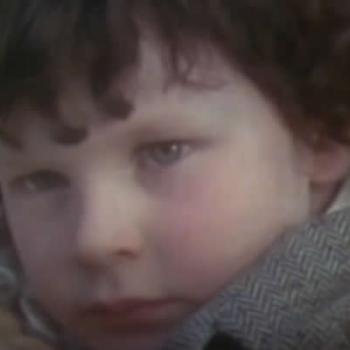Full disclosure: I missed the end of Cinderella.
It wasn’t my fault. I went to a screening up in Denver and watched a good chunk of the movie before the fire alarm went off, sending us—a theater full of moms, kids and one slightly cranky movie reviewer—outside. Turns out there wasn’t a fire, but it didn’t matter: No one could turn off the accompanying strobe lights, and we all know that fairy-tale balls and blinding, Saturday Night Live disco lights don’t jibe that well. So they sent us all home.
As a result, I don’t know how the movie ended. Did Cinderella take revenge on her evil stepmother and stepsisters like a gown-wearing Liam Neeson? Did she get everyone together for a group therapy session? Did they and the fairy godmother form their own plucky basketball team and go on to win the state tournament? It’s all a big mystery.
But seeing half the movie might make for a better (and spoiler-free) blog. Really.
 When the fire alarm broke, Cinderella—actual name Ella (Lily James)—was hurting, and with good reason. Her relationship with her stepmother and stepsisters was, shall we say, a little strained. But years before, her dying mother told her to “have courage and be kind.” It became Ella’s philosophy of life: You don’t just turn your back on your mother’s dying wishes, after all.
When the fire alarm broke, Cinderella—actual name Ella (Lily James)—was hurting, and with good reason. Her relationship with her stepmother and stepsisters was, shall we say, a little strained. But years before, her dying mother told her to “have courage and be kind.” It became Ella’s philosophy of life: You don’t just turn your back on your mother’s dying wishes, after all.
It’s not a particularly easy philosophy to hold to, either. It’s not easy to be kind when you’re hurting. It’s not easy to be courageous when, frankly, circumstances make you want to go back to bed, throw the covers over your head and not get up ’til Tuesday. But Ella has the rare ability to be both courageous and kind, and to “see things on as they are but as they could be.” That extends even to her hard-to-like step-relatives. They are as good, she says, “as they are able,” which she knows isn’t saying much.
Her courage forms the backbone of her kindness, and nowhere is that better illustrated when she learns that her father died during a business trip. She’s obviously crushed—and yet she has the wherewithal to comfort the messenger before looking toward her own sorrow. “Thank you,” she says. “That must’ve been very difficult for you.” And then, only in the darkened entryway and untended by a soul, does she break down and show the depth of her grief.
Kindness is a hard sell these days. It’s a luxury of sorts—something we indulge in with kids and old people and when the stakes aren’t particularly high. We can be kind to folks who can’t hurt us. We can be gentle to those who require a little gentleness. But when it comes down to dealing with the bullies of the world, most of us take a more aggressive stance. And I think most of us, in Ella’s slippers, would fight back against the nasty influences around her—most notably stepmother Lady Tremaine.
Tremaine (Cate Blanchette) is a bully, albeit a refined one. You get the sense that life has knocked her around a little. And when she marries Ella’s widowed father, she resents the fact that he and Ella share history and memories that she can’t be a part of. Every little hug father and daughter share, any mention of Ella’s dearly departed mother, is like a pinprick to Lady Tremaine’s soul. It’s like Ella and her dad share a world that she can never be apart of. So when Ella’s father dies, Lady Tremaine strikes back—excluding Ella from her own affection as Tremaine (unfairly) thought she was excluded.
 In Disney lore, Lady Tremaine is the “evil” stepmother, and she is indeed pretty wicked. But her motivations, or even her actions, aren’t that unfamiliar to us. I think all of us want to hurt people who’ve hurt us—even when they’ve hurt us unknowingly. We can be pretty harsh when our ire’s up. Tremaine isn’t unusual in her desire to lash out, but rather for the degrading length of the lash. Lady Tremaine aims to punish Ella for simply being her father’s daughter forever. And in a critical, painful twist, Ella’s own kindness becomes the tool of her subjugation.
In Disney lore, Lady Tremaine is the “evil” stepmother, and she is indeed pretty wicked. But her motivations, or even her actions, aren’t that unfamiliar to us. I think all of us want to hurt people who’ve hurt us—even when they’ve hurt us unknowingly. We can be pretty harsh when our ire’s up. Tremaine isn’t unusual in her desire to lash out, but rather for the degrading length of the lash. Lady Tremaine aims to punish Ella for simply being her father’s daughter forever. And in a critical, painful twist, Ella’s own kindness becomes the tool of her subjugation.
Step by step, Tremaine turns Ella from daughter to serf. It begins with a simple drop of a saucer, knowing that kind Ella will pick it up. When Ella offers her room to Tremaine’s quarrelsome daughters, she finds herself banished to the attic. Every good deed Ella does is repaid by evil.
But Ella perseveres. “Have courage, be kind” continues to be her mantra. And the radical kindness that Ella shows takes courage indeed. Says Lily James to Time:
The message in the film is quite clear, and it’s that if you have courage, be kind, then all will be well—that your strength can come from within. Oftentimes when they re-do the fairy tales, the princesses suddenly have swords and armor, that’s where their strength comes from—which is great, but with this one, we wanted to show that there are different kinds of strength. Any kid in the world can draw from strengths within—we all have the potential with that.
That radical strength—the strength found in Ella’s kindness—that is at the heart of what Jesus spent lots of his time talking about.
Y’all know the verses probably better than I do. “Love your enemies,” Jesus says. “If someone slaps you on one cheek, turn to them the other also,” Jesus says. Those things take courage—deep courage. It runs counter to everything we are as human beings. Even Christians have a hard time with these words, because the implications are staggering: The bully at school? The back-biter at work? We’re really supposed to turn the other cheek? Really? And Jesus says, yeah. Really. If you look at Jesus’ Beatitudes in Matthew 5, they could be a promise given specifically to Ella: Blessed are the poor in spirit; those who mourn; the meek; those who hunger and thirst for righteousness; the merciful; the pure in heart; the peacemakers; those who are persecuted because of righteousness.
But here’s the thing. Jesus knew better than anyone that the tangible benefits of some of those “blessings” can be a bit … iffy, at least in this world. God is no fairy godmother. “Rejoice and be glad, because great is your reward in heaven,” Jesus tells us. But Jesus’ own earthly reward was punishment, shame and an ignoble death. There are no guarantees in this life. We can do everything right in God’s eyes and, on this fallen planet, still get screwed.
 And that’s where I left Cinderella when the fire alarm went off. “Have courage, be kind” was her mantra, and what good had it done her? Lady Tremaine and her daughters continued to dump their work and abuse on her. In an effort to get a little warmth, Ella would sleep by the dying embers of the fire and wake up covered in soot. There was no magic pumpkin yet, no glass slipper, no beautiful dress. Ella had no hope of a fairy tale ending. All Ella had was her courage and kindness; her principles and optimism and her ability to see what could be.
And that’s where I left Cinderella when the fire alarm went off. “Have courage, be kind” was her mantra, and what good had it done her? Lady Tremaine and her daughters continued to dump their work and abuse on her. In an effort to get a little warmth, Ella would sleep by the dying embers of the fire and wake up covered in soot. There was no magic pumpkin yet, no glass slipper, no beautiful dress. Ella had no hope of a fairy tale ending. All Ella had was her courage and kindness; her principles and optimism and her ability to see what could be.
And I’d like to think that, even if no fairy godmother came to visit Ella, it would’ve still been enough. Even if goodness doesn’t net you worldly rewards, there’s a certain reward in simply being good, isn’t there? To try to, in your own small way, make the world a better place? And I think even in Cinderella we see that reward in play. Ella, after all, has a joy in her life that Lady Tremaine can’t understand, much less embrace. All the soot in the world can’t hide Ella’s joy, nor can Tremaine’s makeup hide her bitterness, anger and fear.
Critics of Christianity sometimes say that we live in a fairy tale world, and there’s some truth in that. Maybe we’re a little like Cinderella in that discomforting between time, living in a fallen world that sometimes seems spiteful and mean. And how are we told to face that world? With courage and kindness. To see the world for what it is and face it boldly … yet spread, as much as we can, a little mercy and love and hope. In a way, there’s nothing so courageous as kindness.













